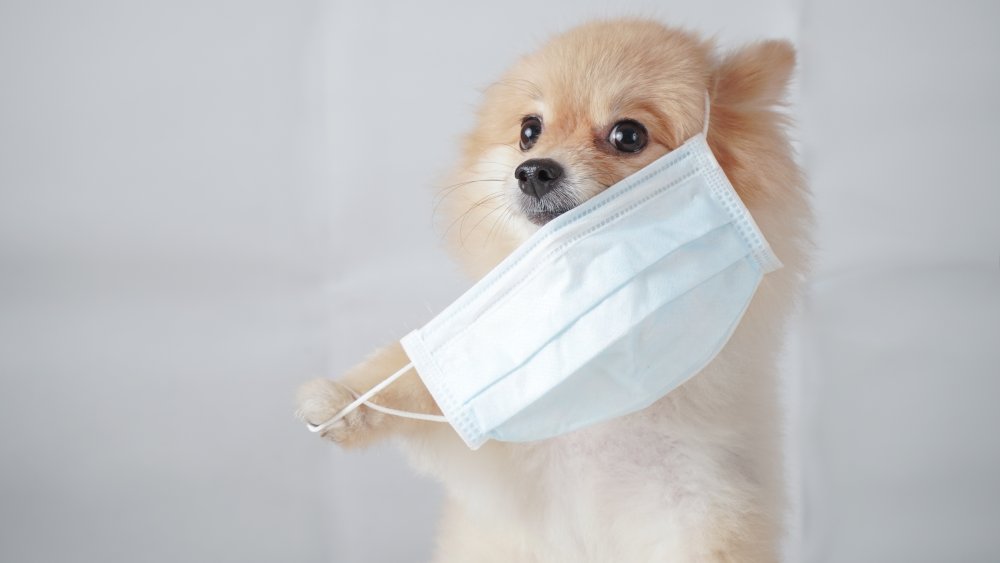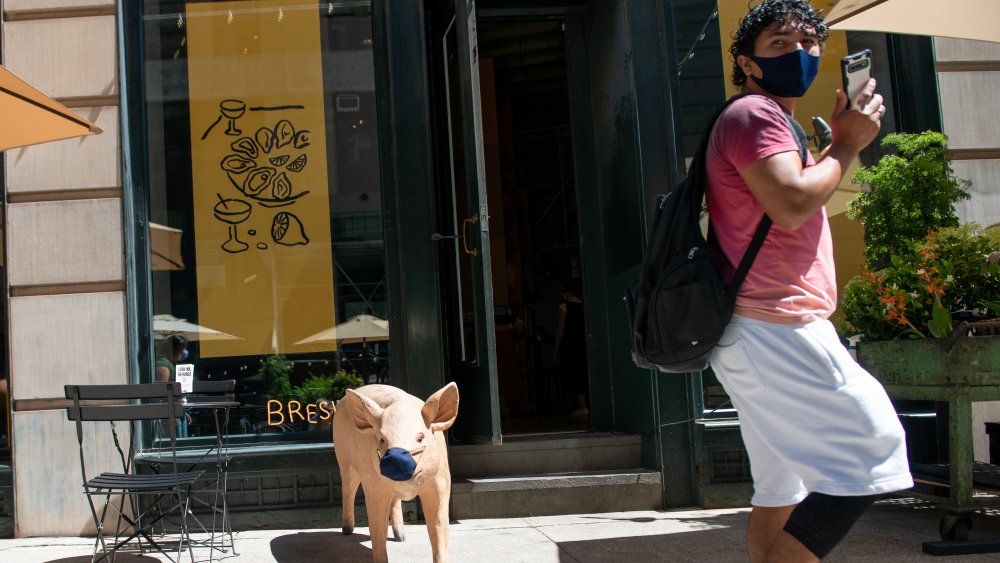The Real Reason Your Face Mask Should Cover Your Nose
Have you ever been out and about and seen people wearing face masks, as is mandated by state and/or municipal law, but they're not exactly wearing those masks as they were meant to be worn? Sure, we've all done the "mask around the neck" or "mask as headband" thing, perhaps when stepping out of the grocery store to set off on a long trek across a sparsely-populated parking lot — not such a crime, when there's nobody within 60 feet, much less 6. What we're talking about here, though, is people who seem to think that they are fully masked when their masks are only covering their mouths.
There's actually a name for people who don't pull their masks up over their nose: Inside Edition says they are known as "half-maskers." Are you, or somebody you love, an inadvertent member of Team Half Mask? Whoopsie! Well, no need to be too embarrassed, since mask guidelines have been changing at a dizzying speed ever since the pandemic began. Just take a deep breath and pull up that mask as we explain why it's in your (and everyone else's) best interest to wear your mask so it covers both your mouth and your nose.
The reason your mask needs to cover your entire lower face
Inside Edition spoke with Dr. Richard Boucher, co-author of a report on the dangers of half-masking, and he says "mask over the mouth isn't enough." The nose is where the virus most often enters the body, so going around with a naked nose potentially puts you in peril. Not only that, but you're also endangering others. Penn State's Huck Institutes of the Life Sciences reminds us that the most important reason to wear a mask is to protect other people, and that respiratory droplets can come out of our noses when we sneeze — or even breathe. They also point out that one of the ways medical professionals test for coronavirus is by swabbing the inside of the nose, so, yeah, noses are germy. Just cover your snoot, already!
If it smells bad in there, it could be your mask is just dirty, in which case you really should wash it. After every use is the recommendation; preferably in hot water. It could also be your diet or dental hygiene (or lack thereof). Address the latter by regular brushing and flossing, but as to the former — well, bad news for keto dieters, since it seems a low-carb diet can cause serious halitosis. The problem is simple to remedy, though. Just put down the bone broth and pick up a carrot or an apple and you should find things start to stink a bit less under that mask.


